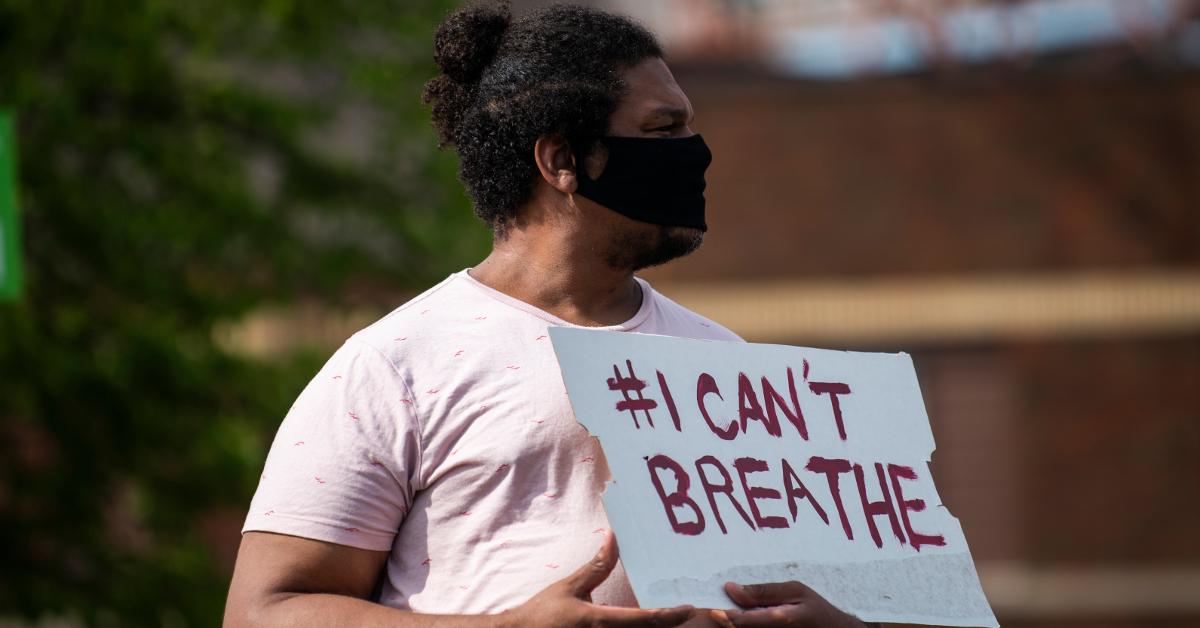George Floyd Had Fentanyl in His System, but That Wasn't His Cause of Death
Published March 31 2021, 10:43 a.m. ET

The trial of officer Derek Chauvin is forcing many to relive the ghastly events of May 25, 2020 in Minneapolis, where Darnella Frazier captured an act that would spark nationwide protests and inspire greater conversations on police brutality and the treatment of Black citizens at the hands of law enforcement.
New developments in the case have brought up recurring arguments surrounding George Floyd's death and greater scrutiny is being placed on the finer details of the case, like whether George Floyd had drugs in his system at his time of death.
Did George Floyd have drugs in his system during the time of his arrest? Yes, but that wasn't his cause of death.
If you watch Frazier's video of Chauvin putting his knee on the back of Floyd's neck, it's difficult to argue on Chauvin's behalf that he was implementing a safe and effective restraint maneuver that took a human being's life into consideration at all.
It's hard to watch the video without getting angry or wishing there was somehow a way to transport oneself into that moment in time and try to stop Floyd's death from happening.
Much has been written about Floyd's rap sheet prior to his death. Snopes went in-depth surrounding the nature of his nine arrests which includes at least one violent crime. As is often the case when a police officer is accused of police brutality, the alleged suspect's past is called into question, and the treatment of George Floyd after his death has been no different.

The question surrounding George Floyd's death, however, was whether or not the drugs he may or may not have been on during the time of his arrest somehow contributed to his passing.
George Floyd's blood work showed that he tested positive for methamphetamine, but it's unknown whether he was "high" on the drug at the time.
There was also fentanyl found in his system. However, the Hennepin County Medical Examiner's report clearly indicates that Floyd's cause of death was "cardiopulmonary arrest complicating law enforcement subdual restraint, and neck compression."
Nowhere in the report does it suggest that George Floyd died of drug use. Floyd was around 6'5" and at the time of his autopsy, weighed 223 pounds, meaning it would take a significant amount of drugs for him to experience an overdose.
Court documents go on to detail behavior from Floyd found in the officer's body cameras that may suggest he had been experiencing possible side effects of drug use. He was reportedly foaming at the mouth prior to being placed on the ground: "Mr. Floyd walked with Lane to the sidewalk and sat on the ground at Lane’s direction. When Mr. Floyd sat down he said 'Thank you, man' and was calm. In a conversation that lasted just under 2 minutes, Lane asked Mr. Floyd for his name and identification. Lane asked Mr. Floyd if he was 'on anything' and noted there was foam at the edges of his mouth. Lane explained that he was arresting Mr. Floyd for passing counterfeit currency."
"At 8:14 p.m., Officers Lane and Kueng stood Mr. Floyd up and attempted to walk Mr. Floyd to their squad car. As the officers tried to put Mr. Floyd in their squad car, Mr. Floyd stiffened up and fell to the ground. Mr. Floyd told the officers that he was not resisting but did not want to get in the back seat and was claustrophobic," the court documents read.
It appears George Floyd did indeed die on the scene, but the autopsy doesn't indicate his death was due to him using drugs.
EMS and Fire Department officials stated that their attempts to revive George Floyd after placing him in an ambulance following the scene of his arrest rendered no change to his condition, and his official cause of death was cardiopulmonary arrest.
Derek Chauvin is currently under trial for three separate charges: second-degree manslaughter, third-degree murder, and second-degree unintentional murder. Minnesota abolished the death penalty in 1911, and if Chauvin is found guilty of all of these charges and faces the maximum penalty for them, he could be in prison for 50 years.